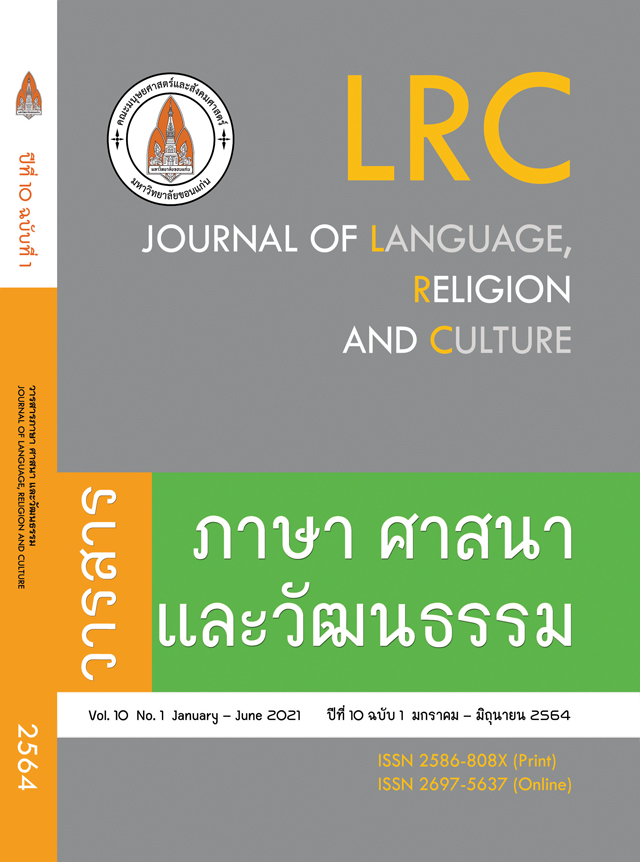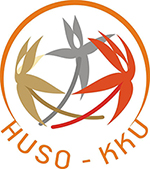Halal Spa on Research and Development: Cultural Health in Southern Thailand
การวิจัยและพัฒนาสปาฮาลาล: วัฒนธรรมสุขภาพในพื้นที่ภาคใต้ของประเทศไทย
Keywords:
Halal spa, Spa business, Cultural healthAbstract
The objectives of this research were as follows: 1) The elements of expectations of the Thai-Muslims about the Halal spa service were explored. The sample group consisted of 400 Thai Islamic people in 5 southern border provinces. The valid and reliable questionnaire was developed from the relative theories and researches, then researchers used it to collect the data from spa clients. The data were analyzed by percentage, mean, standard deviation, and exploratory factor analysis. 2) The quality of the Halal spa manual which was linked to the early research results was examined and developed. The manual contents were assessed by seven experts in three aspects, namely, the validity of the contents, conformity with Islamic principles, and utility. Index of congruence was analyzed in each criterion. 3) Training and assessment for the results of training and applying knowledge after training was done. There were 51 people from 48 communities participating as the target group. After six months, the researchers followed up by applying knowledge and skills for professional development. The data were analyzed using frequency, percentage, mean and standard deviation.
The results of spa clients' expectations were classified into five components, with the highest expectations in staff service components. Moreover, the Halal spa manual met all aspects of content validity, Islamic regulations, and usefulness. Afterwards, it was found that spa providers in district health promotion hospitals, and community enterprise groups had a high level of satisfaction towards the Halal spa training. Finally, after six months of training to apply knowledge, it was found that the trainees were able to apply the knowledge in the workplace and earned 80.43 percent of extra income.
References
กรมสนับสนุนบริการสุขภาพ กระทรวงสาธารณสุข. (2559). ยุทธศาสตร์การพัฒนาประเทศไทยให้เป็นศูนย์กลางสุขภาพนานาชาติ (Medical Hub) (พ.ศ.2560-2569). เข้าถึงที่ http://203.157.7.120/fileupload/2560- 102.pdf.
กันยปริณ ทองสามสี และคณะ. (2561). ความต้องการรับบริการด้านที่พักของนักท่องเที่ยวมุสลิม. วารสารมหาวิทยาลัยศิลปากร, 23(3), 127-147.
แผนพัฒนาเศรษฐกิจและสังคมแห่งชาติ ฉบับที่ 12 (พ.ศ.2560-2564). (2559). ราชกิจจานุเบกษา. เล่ม 133 ตอนที่ 115 ก วันที่ 30 ธันวาคม 2559. เข้าถึงที่ http://www.ratchakitcha.soc.go.th/DATA/PDF/2559/A/115/1.PDF
แผนยุทธศาสตร์ชาติระยะ 20 ปี (พ.ศ.2561-2580). (2561). ราชกิจจานุเบกษา. เล่ม 135 ตอนที่ 82ก วันที่ 13 ตุลาคม 2561.
ภักดี กลั่นภักดี. (2560). ปัจจัยด้านมาตรฐานของสถานประกอบกิจการสปาเพื่อสุขภาพระดับสากลที่มีอิทธิพลต่อความพึงพอใจในการใช้บริการของนักท่องเที่ยวต่างชาติ. วิทยานิพนธ์ศิลปศาสตรมหาบัณฑิต สาขาการจัดการการท่องเที่ยว มหาวิทยาลัยธุรกิจบัณฑิตย์.
มนต์ชัย วงษ์กิตติไกรวัล. (2561). ธุรกิจสปาไทยติด Top 5 ของเอเชีย แนะโรงแรมเพิ่มบริการรับเทรนด์.
ยุทธศาสตร์การส่งเสริมและพัฒนาศักยภาพธุรกิจสินค้าและบริการฮาลาล (พ.ศ.2559–2563). (2558). เข้าถึงที่ https://www.dip.go.th/Portals/0/2558/Busarin/ข่าวฝาก/Halal%20Strategy.pdf
โรงแรมสปาและสปารีสอร์ท. (2560). เข้าถึงที่ http://www.hotelsthailand.com/hotel-category/spa-hotels-resorts/
วรลักษณ์ เขียวมีส่วน, สันติภาพ คำสะอาด และพิทักษ์ ศิริวงศ์. (2561). แนวทางการพัฒนาศักยภาพธุรกิจสปาเพื่อตอบสนองความคาดหวังในการใช้บริการของนักท่องเที่ยวชาวต่างประเทศ บริเวณอำเภอหัวหิน จังหวัดประจวบคีรีขันธ์. วารสารวิทยาลัยดุสิตธานี, 12(2), 167-181.
อมรา อารีย์, ทวี แจ่มจำรัส และดวงกมล คงเหลือ. (2562). บุพปัจจัยที่มีอิทธิพลต่อการพัฒนาอุตสาหกรรมการ ท่องเที่ยวตามหลักฮาลาลในจังหวัดเชียงใหม. วารสารมหาจุฬานาครทรรศน์, 6(10), 5802-5820.
อารี วิบูลย์พงศ์ และคณะ. (2560). รายงานโครงการจัดทําแผนยุทธศาสตร์การพัฒนากลุ่มจังหวัดภาคใต้ชายแดน ระยะ 20 ปี (พ.ศ.2560-2579). เข้าถึงที่ https://www.osmsouth-border.go.th/files/comnews_strategy/2017-11_fd8549c27b07992.pdf
Marc, C. & Gerard, B. (2015). Understanding the Global Spa Industry: Spa Management. New York, NY: Routledge.
Mastercard and Crescent Rating. (2019). Global Muslim Travel Index 2019. Retrieved from https://www.crescentrating.com/reports/global-muslim-travel-index-2019.html
Navarro, D.J. and Foxcroft, D.R. (2019). Learning Statistics with Jamovi: A Tutorial for Psychology Students and Other Beginners. DOI: 10.24384/hgc3-7p15. Retrieved from http://learnstatswithjamovi.com
Posner, X. (2018). Management for Spas. New York, NY: Larsen and Keller Education.
R Core Team (2019). R: A Language and Environment for Statistical Computing. (Version 3.6) [Computer software]. Retrieved from https://cran.r-project.org/.
Rawlinson, S. and Heap, T. (2017). International Spa Management: Principles and Practice. Wolvercote, Oxford: Goodfellow Publishers, Limited.
Revelle, W. (2019). Psych: Procedures for Psychological, Psychometric, and Personality Research. Retrieved from https://cran.r-project.org/package=psych.
Srinivas, K.T. (2012). A study on effectiveness of training and development programs adopted by KPCL, Bangalore. International Journal of Engineering and Management Research, 2(1), 44-50.
The jamovi project. (2020). Jamovi. (Version 1.2) [Computer Software]. Retrieved from https://www.jamovi.org.
The Standard. เข้าถึงที่ https://thestandard.co/thai-spa-top-5-asian-spa/
Wallace, M. and Smith, M. (2020). The spa manager's essential guide. Oxford, UK: Goodfellow Publishers, Limited.
Wisnom, M. and Capozio, L. (2020). Spa Management: An Introduction. Ann Arbor, MI: XanEdu Inc.
Yamane, T. (1967). Statistics: An Introductory Analysis, 2nd Edition. New York, NY: Harper and Row.
Downloads
Published
How to Cite
Issue
Section
License
Copyright (c) 2021 JOURNAL OF LANGUAGE, RELIGION AND CULTURE

This work is licensed under a Creative Commons Attribution-NonCommercial-NoDerivatives 4.0 International License.







